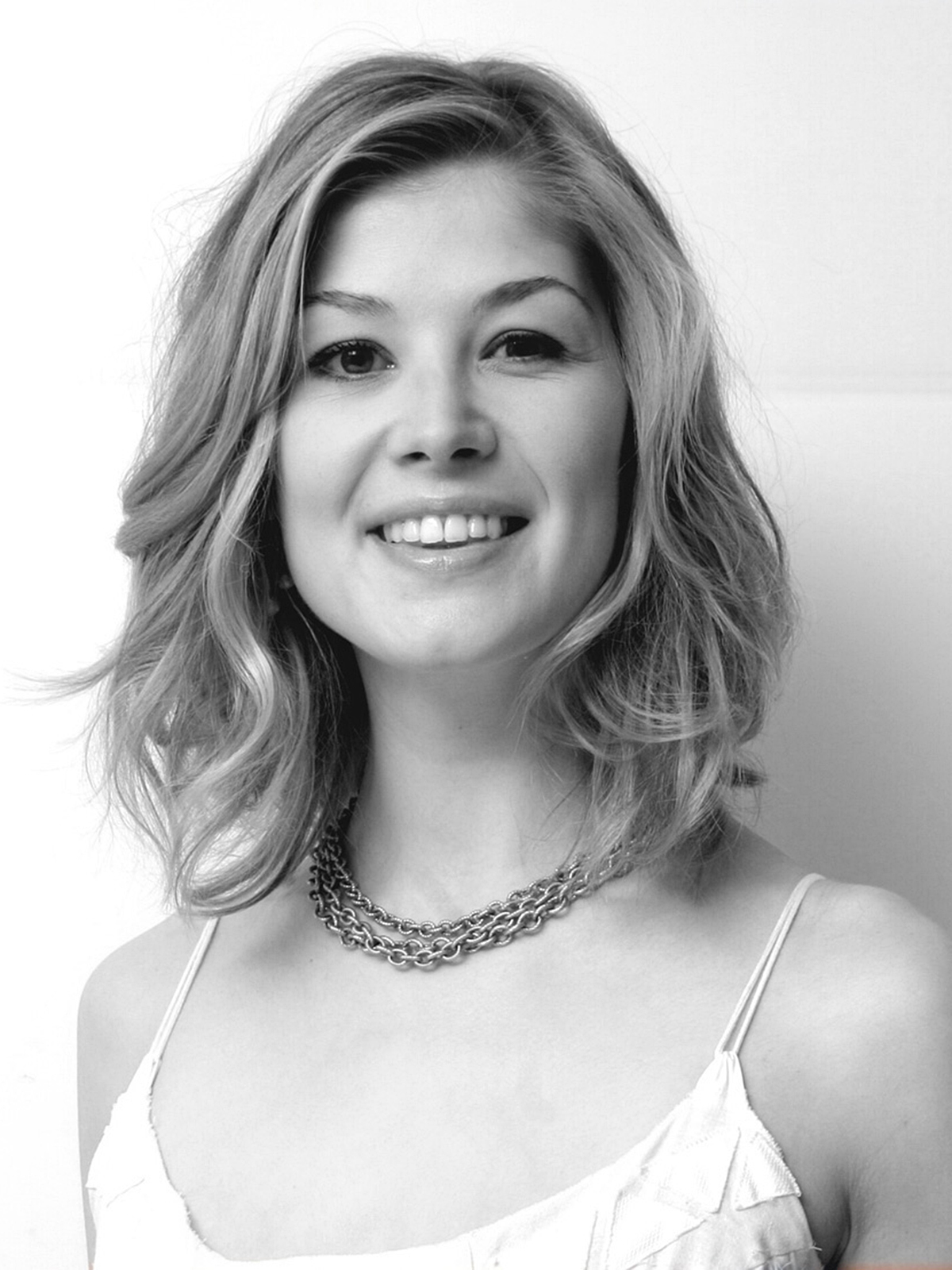
- Golden Globe Awards
Rosamund Pike, 2005: on Pride, Prejudice, and Romance
Rosamund Pike, Golden Globe best actress winner for I Care a Lot, and nominee for Gone Girl and A Private War, spoke to the journalists of the Hollywood Foreign Press in 2005 about playing Jane opposite Keira Knightley as Elizabeth in Pride & Prejudice directed by Joe Wright from the 1813 novel by Jane Austen.
“I know I was given the book Pride and Prejudice when I was about thirteen, but I am not sure that I finished it, because I definitely remember the beginning much more clearly than the end. I did study literature at university, but I didn’t study Jane Austen, which I’m pleased about, because if it would have been butchered by school, it wouldn’t have been so fun for me to read later. I never think there’s any rub off of having done a literature degree and the work I do as an actress. It’s two completely different headsets that you wear, so I don’t approach any film with a literary sensibility.”
“When she wrote the book, Jane Austen said she was writing a letter to someone, so the Jane and Lizzie relationship is based quite a lot on her relationship with her sister Cassandra. Jane Austen’s letters to Cassandra are really affectionate, but they also suggest that they got exasperated with each other.”
“I enjoyed playing Jane, I probably felt the happiest I felt for a long time, because the cast dynamics tend to mimic character dynamics, so it was the sense of actually being loved by lots of younger sisters, and that carried on off set as well. It was lovely to give and get such warmth. I know that it sounds sentimental perhaps, but it was quite an extraordinary time.”
“Jane is a tricky character, especially for a modern audience, because those values of sweetness and propriety aren’t so fashionable now and they could potentially be irritating, so I hope that we managed to make Jane seem entirely natural. I was really adamant that I didn’t want her to appear a vain character. I thought that this girl, because she has hit a zeitgeist, she’s happy in her time and she fits the ideal, but it’s not through affectation.”
“You feel recognized by Jane Austen, that there’s somebody writing about what you’re going through, but you can feel that at any age, because Jane Austen trades in very real human emotions, what it means to be a difficult person trying to understand other difficult people, and human beings essentially are difficult. She’s also dealing with that moment where big feelings come into play for the first time, and you can feel that moment come when you’re 25 or when you’re 15 or whenever. And reading that book it makes you want to fall in love.”
“Jane Austen is dealing with the wish fulfillment of the idea that love is possible, and love does conquer all, that you’re allowed to be purely romantic. That’s almost what the whole book is about, that romance is licensed and allowed. But I am so glad that we don’t have to live in a world where we’re that limited, our access to people is so vast nowadays, and the idea of living in a tiny village and having to wait for people to pass through the village or somebody by chance to rent a house or stay there for a summer, that is so limiting.”
“I am hugely romantic. I get very excited by people wherever I am, and telling this story made us all very romantic. It was a good story to tell, it rubs off on you.”

